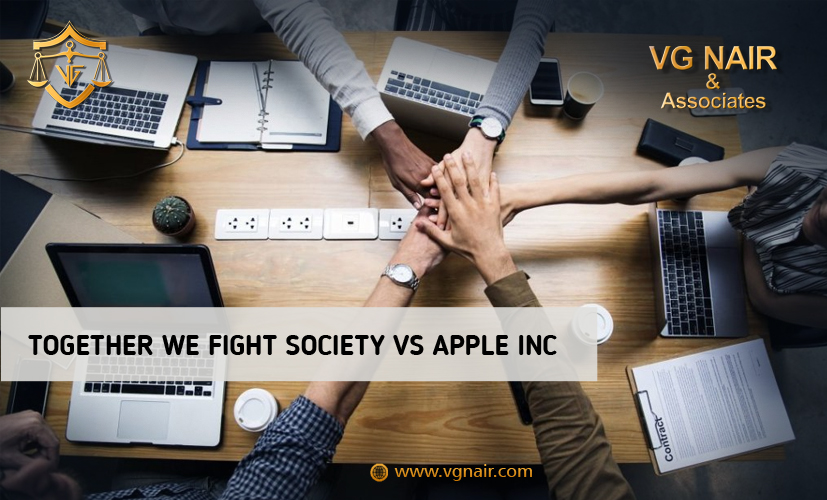TOGETHER WE FIGHT SOCIETY VS APPLE INC

Apple Inc. is engaged in designing, marketing, and selling smartphones (including the iPhone), personal computers (including iMacs), tablets (including the iPad), wearables and accessories, and a variety of related services. The case of Together We Fight Society v. Apple Inc. 2021 has gained significant attention due to its implications for both consumer rights and the power of technology giants.Together We Fight Society, a consumer advocacy group, filed a lawsuit against Apple Inc. in 2021, accusing the tech giant of antitrust behaviour and monopolistic practices within its App Store ecosystem.This case highlights the ongoing debate surrounding the regulation of big tech companies and their impact on competition in the market. The outcome of this investigation could have far-reaching consequences for both Apple and the broader tech industry.
The informant argued that Apple's strict control over in-app purchases on iOS devices creates a monopoly and limits competition, ultimately resulting in higher costs for consumers. They also highlighted that this practice goes against principles of fair competition and consumer choice, as developers are forced to comply with Apple's payment processing system or risk being excluded from the App Store.
The informant has claimed that Apple engages in anti-competitive behaviour, abusing its market dominance to distribute applications to users of smartphones and tablets and handle payments from customers for digital content that is used within iOS mobile apps ("in-app content"). The informant argues that Apple's monopoly on the App Store inhibits innovation and competition, which hurts customers in the long run by limiting their options and possibly raising prices. The source further claims that because Apple requires apps to use its payment processing system, developers are compelled to pay expensive fees, which hinders their ability to compete fairly in the market. Allegations of anti-competitive activity and monopolistic dominance over the app distribution and payment processing markets have resulted from these actions. Opponents contend that these regulations impede innovation in the digital content sector and restrict consumer choice. The lawsuit underlined that because developers are compelled to pass on the 30% commission to their users, which results in higher prices, Apple's tactics ultimately hurt consumers. They maintained that there would be more competition, lower app prices, and more options for consumers if developers were permitted to provide alternate app distribution channels or if the commission rate was decreased.
According to the CCI, Apple dominates the relevant market for "iOS app stores in India." Primarily, the CCI concurred with the informant's claims after reviewing the App Store Review Guidelines. Regarding Apple's marketing limitations, the CCI pointed out that preventing app developers from alerting users to alternate ways to make purchases within the app would drive up the cost to customers. The CCI also pointed out that although there are less expensive options, app developers are limited in their ability to use a payment processing system of their choosing because in-app purchases and paid apps are required to use Apple's IAP. Regarding the commission cost, the CCI pointed out that Apple's competitors may find it more difficult to compete with Apple if they charge a high percentage of 30%. This might also hurt Apple's competitors in downstream sectors like e-books, music, and video streaming. The CCI added that in order for Apple to enhance its own services, it would be beneficial to look into whether it would have access to user data gathered from its downstream competitors. Finally, the CCI stated that because app developers are not permitted to offer such services under the developer rules and agreement, third-party app shops are not permitted to be listed on Apple's App Store.
In summary, the ruling may lead to a more open and competitive app marketplace, benefiting both developers and consumers.This case also highlights the need for greater transparency and accountability in the tech industry to ensure a level playing field for all stakeholders involved.
